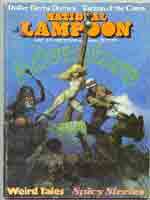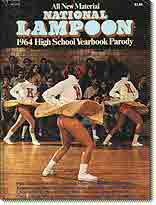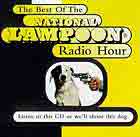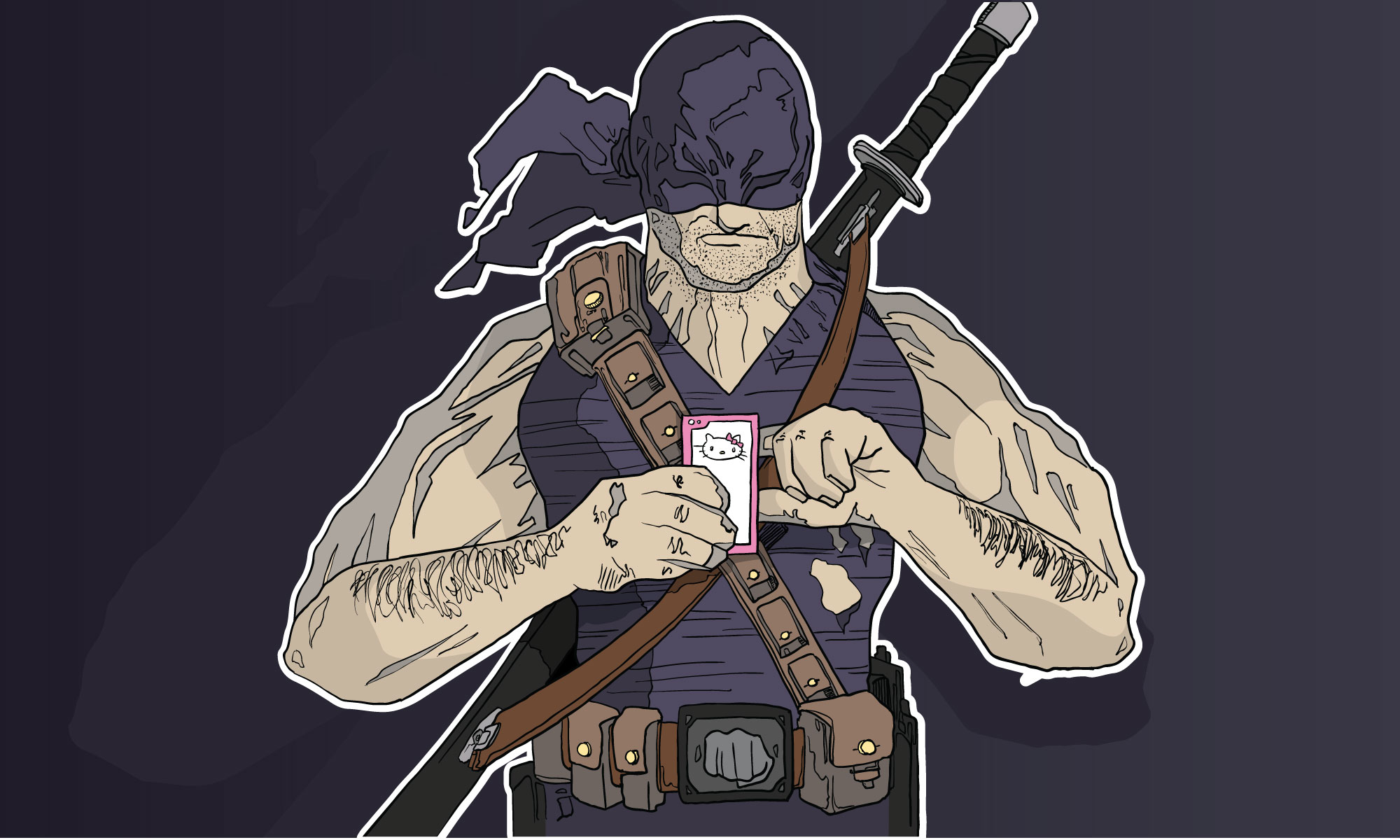 Last night I had a very interesting time down at the Hideout. Three writers from the golden age of the National Lampoon were there at that charming little dive by the Streets & San Garage to talk about that groundbreaking era of comedy. (The fliers called it a historic gathering, and for comedy geeks it probably was.) Anne Beatts, Chris Miller and Brian McConnachie were gathered to talk about the embryonic stages of the 1970s comedy revolution, hosted by Josh Karp, who wrote a book a few years ago about the magazine.
Last night I had a very interesting time down at the Hideout. Three writers from the golden age of the National Lampoon were there at that charming little dive by the Streets & San Garage to talk about that groundbreaking era of comedy. (The fliers called it a historic gathering, and for comedy geeks it probably was.) Anne Beatts, Chris Miller and Brian McConnachie were gathered to talk about the embryonic stages of the 1970s comedy revolution, hosted by Josh Karp, who wrote a book a few years ago about the magazine.
I went alone, b/c I couldn’t think of anyone who would want to tag along. Of course, I wouldn’t be the only guy there alone—out of the 100+ in attendance, I think the biggest group I saw was about four. There were a lot of solitary middle-aged guys there who remember the first time they were truly shocked by something funny on the page. Like the guy with the loud shirt and bad breath next to me, who somehow bonded with me and had to tell me repeatedly which of the NatLamp magazines, books and records he had in his basement somewhere. There were also a fair number of folks in their 20s and 30s who were listening and learning.
Not wishing to appear too much of a fanboy, I didn’t bring anything along for the writers to sign. Maybe I should have. Then again, it would be very difficult to get my hands on the old magazines that featured their writing, buried in the basement somewhere as they are. PJ O’Rourke signed my copy of the 1964 High School Yearbook Parody some years back, but these three didn’t really contribute to it, so that didn’t seem right.
Anyway, humor was in the air. Which means that everyone aside from Beatts, Miller and McConnachie was trying to be as funny as the writers were. So it goes. The moderator, such as he was, gave each writer 30-40 minutes to talk or read stories on their own, which made for a slow start. Anne Beatts was the first to speak, and while she certainly has the professional credits, I’ve never found her to be excessively funny. Or let me say, her byline in the NatLamp was not one that I raced to read. Kenney, O’Donoghue, O’Rourke, Miller, Hendra, Beard, McConnachie, Kelly—roughly in that order—were the names I looked for. Last night, she read a long story about getting noticed enough to contribute to the magazine, wanting to cheat with O’Donoghue while her boyfriend was in Europe, and dropping acid on the day that Jim Morrison died. It was a memoir, obviously, so she didn’t bother to make it funny, but the constant “I said-he said” and the lionizing tone of it made it a chore to listen to. What would O’Donoghue say to all the attempts to lionize him last night? Something obscene and hilarious, no doubt, ablaze like a Viking ship.
McConnachie looked like a bemused professor, and was very funny and concise in his comments. He came from an advertising background but had been gently fired, as was done in those days, and gravitated to the NatLamp offices because that seemed like the place to be. He was never as manic as everyone else there, but he said the others kept him around as a potential ally for any of the internecine duels that would flare up. He said he often hung out in the offices where John Belushi and many ex-pat Chicagoans were working on the “NatLamp Radio Hour” and the various stage projects being worked on. When these people moved on to “Saturday Night Live”, he said “the air seemed to go out of the offices” and the business of humor became a lot more tedious. McConnachie brought along a rare treat last night: an audiotape of a song from an off-Broadway musical idea called “Moby!” It featured John Belushi as Capt. Ahab, lamenting his fate as he sang, “I’m the loneliest man at sea.” Completely hilarious, and well sung besides. The panel agreed that Belushi was an intensely smart man and a great judge of talent, and his death shook up a lot of comedians. “When Doug Kenney fell off his mountain in Hawaii,” McConnachie said, “it was like a bolt of lightning from heaven. When Belushi died, it was just stupid.”
He then read a short story he said was written specifically with Chicago in mind, with a title something like “Father Ding-Dong of the Nincompoops,” about a prizefighter who becomes a priest but can’t learn to stop swinging when he hears a bell. It was one of the funniest things I’ve heard in a long time. I should go back to read his old material, which the 15-year-old me dismissed, because I’m sure I missed a lot.
Finally Chris Miller got to speak. He still has a full head of hair and a rakish laugh and smile, but there’s a gut attached to his skinny frame that looks like he’s a suicide bomber strapped up for work. He told the longest stories of the three, but also the funniest, and read an old NatLamp story called “Conversation Piece,” about having sex with an eager telephone receiver. Seeing a man at retirement age, reading with gusto a filthy, filthy, hilarious story—it gladdened the heart of many a juvenile person there that night. His graphic and absurd stories about his fraternity days seemed to irk Beatts and embarrass McConnachie, but I was glad to hear about a man who wore a pumpkin and nothing else to go trick-or-treating at Dartmouth.
The Q&A session was too short and could’ve used more fireworks, but that was the fault of the moderator. A few things I remember:
• Humorists who inspired them: All the writers mentioned Thurber. Miller mentioned Harvey Kurtzman at the first MAD Magazine, and Al Feldstein. McC mentioned someone named EF Benson, whom I should look up. And they all acknowledged a debt to Terry Southern, Bruce Jay Friedman, and Philip Roth. Miller said Portnoy’s Complaint made him realize that if a respected novelist could write what he did, Miller could write about ANYTHING.
• PJ O’Rourke: They said his politics were not right-wing at the beginning, but when he became managing editor at the publisher’s insistence, he became a tyrant. McC said O’Rourke made some of the writers nervous with the way he seemed to watch them and want to be like them, sort of a stylistic vampire. It got to the point where they would tell him the happy hour meeting place was Bar X while it really was Bar Y. McC got a huge laugh by describing O’Rourke as a guy in a gorilla mask, in which the human eyes don’t match up with the eyeholes and tip off the fact that someone may not be who them seem. I was glad, though, that Miller defended O’Rourke, that for all his non-anarchic tendencies, he always brought his game, and was very, very funny.
• Comedy today: In the 1970s, these people fell into comedy because their regular careers had collapsed (or else they had sabotaged them, as Miller had by sprinkling marijuana on his soup at an ad lunch). Now, Beatts says she sees people in her classes at USC “who can’t decide whether to go into Dad’s plumbing business or write for a sitcom.” They all agreed that the expansion of the comedy business has diluted the talent pool. She also complained that most of today’s comedy doesn’t have a point of view and a passion and anger behind it.
• Right-wing comedy: Miller summed up the problem with right-wing “comedy” very well: “They pick on the weak and powerless, on people who can’t fight back. That’s not what comedy is.”
The session ended after 2.5 hours, when that night’s band began wheeling in their equipment. I ducked into the men’s room, and when I came out, all three writers were gone. Which is just as well. As I said, I wasn’t in too much of a fanboy mood, but still I might’ve ventured to gush a bit and embarrassed myself. Still trying to figure out how the trio got together, and what they were ultimately on the road trying to flog.

